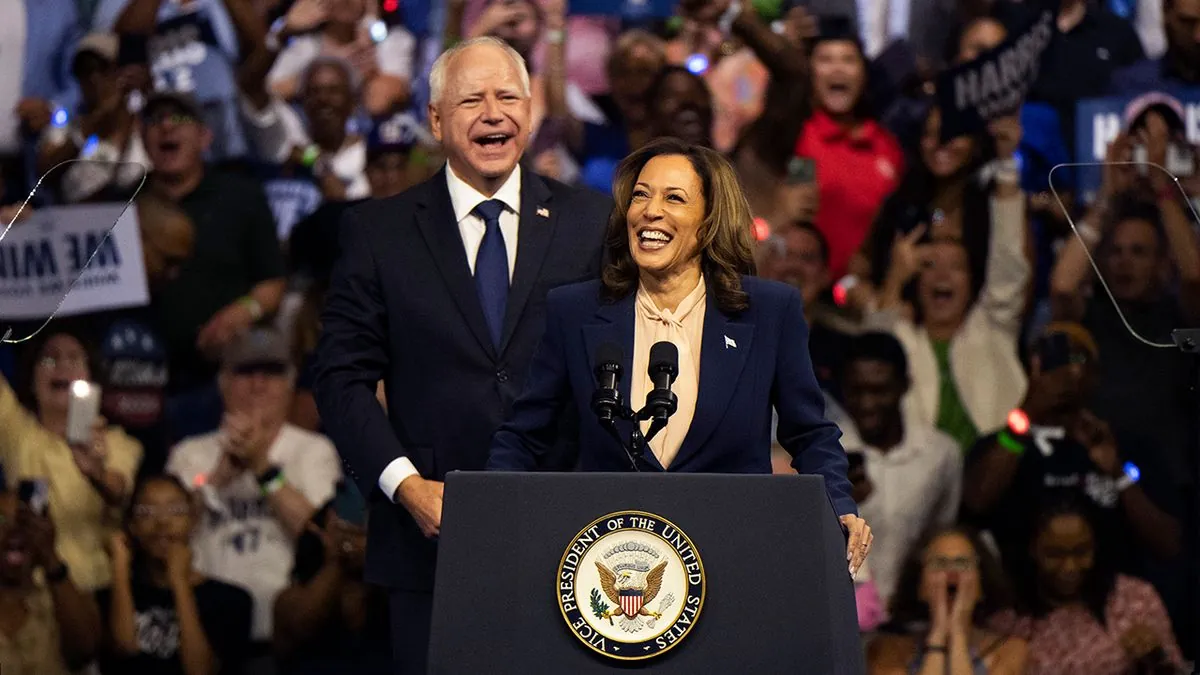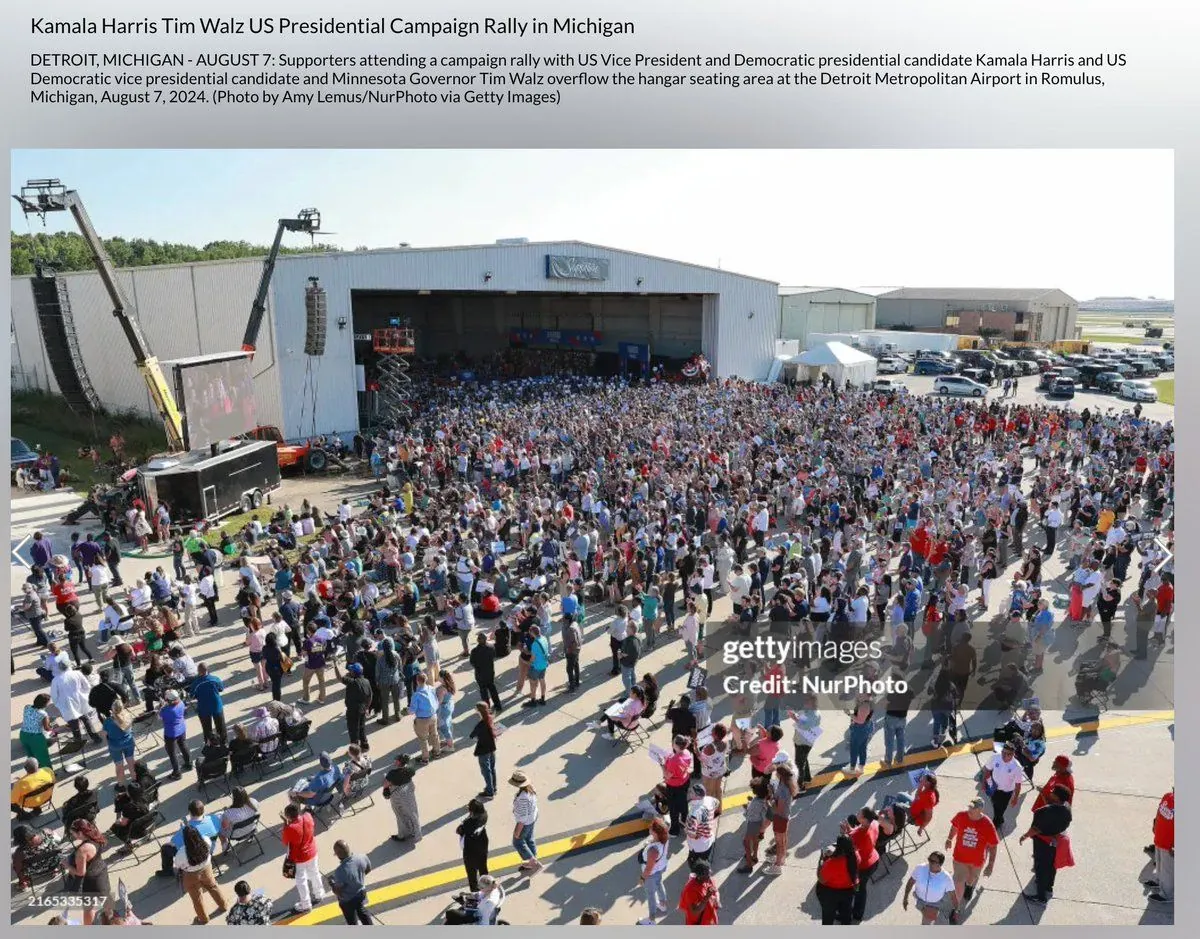Fake AI Image of Harris-Walz Rally Crowd Sparks Social Media Confusion
A parody account's AI-generated photo of a Harris-Walz campaign rally crowd is being mistaken for an official image, leading to false claims about attendance misrepresentation.

An AI-generated image depicting supporters at a campaign rally for Kamala Harris and Tim Walz has sparked confusion on social media platforms. The image, created by a parody account, is being misconstrued as an official representation of the event's attendance.
The actual rally, held at the Desert Diamond Arena in Glendale, Arizona, on August 9, 2024, drew a substantial crowd estimated at over 15,000 attendees, as reported by Reuters. This event was part of the campaign efforts leading up to the U.S. presidential election scheduled for November 5, 2024.
The AI-generated image first appeared on a parody account on X (formerly Twitter) on August 10, 2024. The account, @Sarcasmcat24, clearly labeled as "PAR/ODY" in its bio, posted the image with a caption suggesting an unprecedented level of enthusiasm at the rally. The creator later confirmed that the image was intentionally made to look unrealistic, with poorly developed faces and other obvious flaws.
Despite the parody account's transparency about the image's artificial nature, some social media users mistakenly shared it as evidence of alleged crowd size misrepresentation by the Harris-Walz campaign. A Facebook post on August 11, 2024, falsely claimed that the AI image was an attempt by the campaign to inflate attendance numbers.

It's important to note that neither Vice President Harris nor her campaign shared or endorsed the AI-generated image. The campaign's official social media accounts did mention large crowd sizes at recent rallies but did not use the artificial image in question.
This incident highlights the growing challenge of distinguishing between real and AI-generated content on social media platforms. As AI technology becomes more sophisticated, the potential for misinformation spread increases, making fact-checking efforts increasingly crucial.
The situation also underscores the importance of media literacy in the digital age. Users are encouraged to verify sources and critically examine images before sharing them, especially in the context of political events.
As the 2024 U.S. presidential election approaches, the spread of misinformation and the use of AI-generated content in political discourse are likely to remain significant concerns. Social media platforms, fact-checkers, and users all play crucial roles in maintaining the integrity of online information.
When approached for comment on the situation, the Harris campaign declined to provide a statement.


































